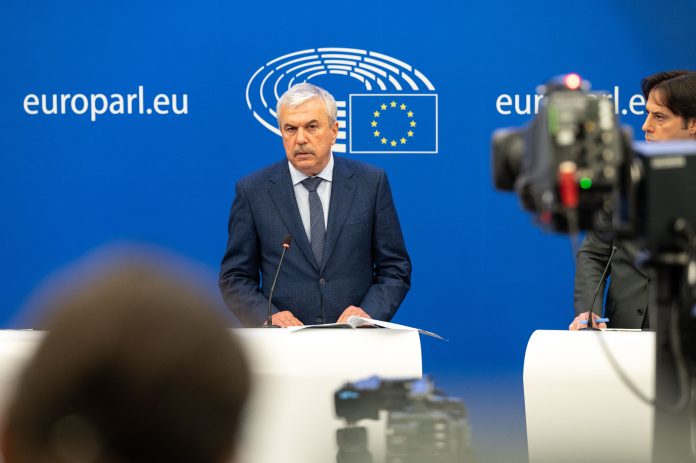Plans to secure the EU supply of chips by boosting production and innovation, and creating emergency measures against shortages, were agreed by Parliament and Council on Tuesday.
The provisional deal was reached in Strasbourg after a 4th round of negotiations between Parliament, Council and the Commission, less than two months after MEPs opened talks.
Thanks to the new law, investors will benefit from a favourable environment for chip investments in Europe, both in terms of fast tracking permitting procedures and a recognition of their critical importance as a so-called “highest national significance statute”. Small and medium-sized businesses will also benefit from increased support, especially in the area of chip design, in order to boost innovation.
The legislation will also support projects to reinforce the EU’s security of supply by attracting investment and building up production capacity. During the talks, MEPs secured €3.3 billion for research and innovation related to chips. A network of competence centres will be created to address the EU’s skills shortage and attract new talent for research, design and production.
Crisis response mechanism
During negotiations, MEPs successfully pushed for a crisis response mechanism, through which the Commission will assess the risks to the EU supply of semiconductors and early warning indicators in member states will be used to trigger an EU-wide shortage alert.
This mechanism will allow the Commission to implement emergency measures such as prioritising the supply of products particularly affected by a shortage, or carry out common purchasing for member states. MEPs further improved the scheme by introducing a mapping mechanism that will help identify possible supply bottlenecks. These measures will be a last resort in the event of a crisis in the sector of semiconductors .
Parliament also added provisions to strengthen international cooperation with strategic partners and on intellectual property rights, to guarantee competitive advantages and protection for the EU sector.
“The result of these negotiations showed Parliament’s ambition to have the right level of budget for research and innovation, a budget that does protects ongoing funding programmes and gives a real chance to the European Union to compete globally. We want to secure the EU supply of chips by boosting production and innovation, and setting up emergency measures against shortages,” said Rapporteur Dan Nica (S&D, RO).
The informal agreement will now have to be endorsed by both Parliament and Council to come into law. The Industry, Research and Energy Committee will hold a confirmation vote in a forthcoming meeting.
A Study from the Parliament highlights that the share of Europe in global production capacity of semiconductors is below 10%. The legislative proposal aims to bring it up to 20%.
Parliament analysis in 2022 highlighted that the pandemic has revealed long-standing vulnerabilities in global supply chains, and the unprecedented shortage of semiconductors is a prime example. It shows what might be in store in the years to come. These shortages have led, among other issues, to rising costs for industry and higher prices for consumers, and have been slowing down the pace of recovery in Europe.

